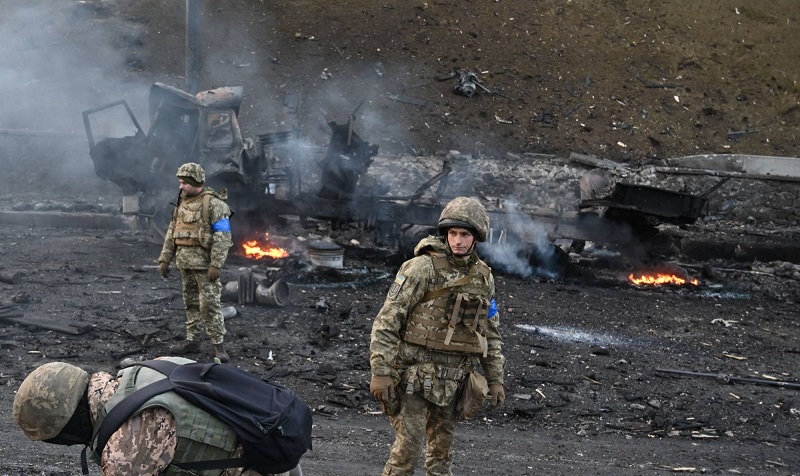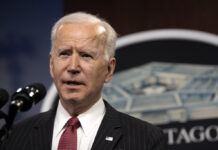The ticking of the doomsday clock has never reverberated louder across the world than it does now. Russia intensifies its missile bombardments and military round-up due to the Ukrainian counter-offensives, which fill the papers and flood millions of screens on social media.
The public, led by the newfound hope in legacy media reports, has grown more acquainted with the conviction that Ukraine could leave this conflict victorious. The Western pledges of an unbreakable alliance, the constant boasting of every inch of retrieved territory, the demonisation of Vladimir Putin, all of it playing in synchrony with the idea of a winning endgame. But will Ukraine win, or rather, is victory even possible?
Since the war erupted, military capabilities have been the main focus regarding the war’s outcome. At the onset of the war, experts speaking to the BBC, Politico, The Washington Post, and France 24 told us that it would be nearly impossible for Ukraine to defend itself. Today, the same media companies have suggested that Ukraine might be on the verge of winning it.
Understanding war in this way, however accurate and necessary, fails to consider the intricate symbolisms and underlying realities of the conflict. These experts are equipped to consider such things, but looking at numbers, military tactics, and international politics can become blindly intoxicating.
Reports coming from major outlets such as the BBC claim a Ukrainian victory would resemble a full retreat by the Russian military, liberating not only the newly annexed oblasts but also Crimea, which has been under Russian occupation since 2014.
At face value, this can seem like the desirable outcome. After all, this would mean a big hit to Putin’s authority on an international level and boost the credibility of Western governance. The history books would reflect how the Western alliance united valiantly and humiliated the big bully.
Now, think back to the end of the First World War; Western allies issued a set of punishment measures meant to keep Germany at its knees. Barely 20 years later, the Nazi regime waged yet another war, this one even bloodier than the last.
If the two situations sound dissimilar, allow me to elaborate.
Something that goes unnoticed about this war, with only sporadic reports dedicated to it, is, as a Washington Post report stated as recently as September, the overwhelming support of Russia’s invasion by its people. A recent report on Russian public opinion outlined in a CBC report has shown why this is the case.
From the average Russian’s point of view, a war with Ukraine represents a much wider conflict with the West, relying on a narrative of Western aggression transmitted through the powerful propaganda machine. Similarly to Nazi Germany, it’s this support that is the bedrock of Putin’s influence, and much like Hitler did, Putin also continues to manipulate public opinion in his favour.
Say, for example, that Ukraine forces Russian troops to retreat. Putin’s first step would be to turn the seemingly unequivocal defeat into a victory. He could easily do so by appealing to one of the main outlines given to justify the invasion: the overwhelming corruption of Ukraine by Nazi ideologues, a claim that could not be further from the truth. In this case, the narrative in Russia would highlight that Putin willingly left Ukraine, having achieved his main goal of de-Nazification, thus morally justifying the invasion and the death associated with it.
In the meantime, it isn’t inconceivable to picture the West gloating about their victory as leaders across the world. They would start using their management of the conflict as political soundbites to stay in power within their respective countries. This can very well give Putin the means to claim that the West aims only to humiliate Russia and, by proxy, its people.
It may seem as though this is a rather pessimistic take, or rather that the comparison between Nazi Germany and the Ukraine conflict may be somewhat overstated. But this trend of simplifying ‘victory’ has been replicated many times in recent years in countries such as Iran, Afghanistan, and Ethiopia, all of which had a great deal of Western influence and were characterised by a victorious/defeated dichotomy. They are now in a similar or worse situation.
We have, then, a symbolic concern that is, at the very least, on the same level of priority as military details. The real question lies in how to reconcile both in a way that grounds geopolitical tensions on a steady footing for the future.
None of this means that Western support for the war effort in Ukraine is wrong. I do not believe that there is any such thing as a binary right or wrong approach. Instead, the focus is on approaching the conflict in a way that is not just militarily adjacent.
If the foundation of Putin’s influence is the support of his public then focusing on methods of accurately informing the Russian people should, in my eyes, be on the West’s priority list at a similar level to deflecting missiles.
If you’ve followed any coverage of the topic you will have come across reports from the Financial Times and the BBC covering Russian protests and oligarchs that have questioned Putin’s decisions. Yet, I get the impression these are yet to have any real damage to Putin’s ability to control Russia, with him having a firm grip on whoever opposes him.
Part of this result has been due to the violent retaliation by government forces, something the media have focused on, but must also be attributed to Putin’s capability of mobilising a majority of the public opinion.
Solidifying the narrative in terms of the military or a good versus evil mindset makes sense in terms of placing pressure on Putin, but it only marginally affects Russia’s political environment.
Instead, it hardens the divide between the West and the proverbial ‘Rest’ and ticks the clock closer to midnight.





